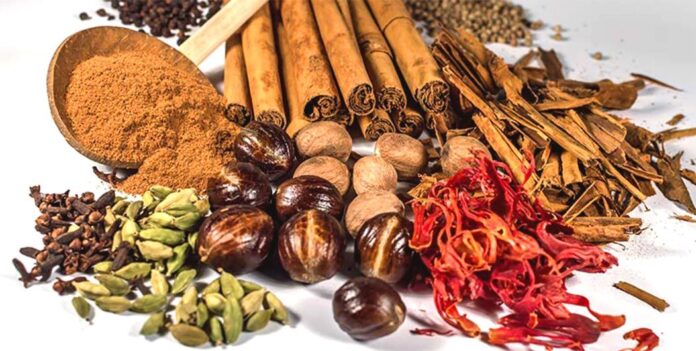By: Staff Writer
August 07, Colombo (LNW): Sri Lanka is pushing ahead with its strategy to boost foreign exchange earnings by encouraging value addition in its lucrative spice industry, with the government approving four local firms to operate as ‘approved enterprises’ under the spice re-export scheme. This move comes amid a notable surge in spice and essential oil export earnings during the first half of 2025, which rose by 29.64% year-on-year to US$ 208.53 million, according to data released by the Export Development Board (EDB).
The top-performing spices contributing to this increase include cinnamon, pepper, and cloves. Cinnamon exports rose by 25.01%, pepper by 26.86%, and cloves saw an extraordinary growth of 277.67% compared to the same period last year. These figures reflect a growing global demand for Sri Lanka’s high-quality spices and essential oils.
At the weekly Cabinet media briefing held on Tuesday (6 August), Cabinet Spokesman and Minister Dr. Nalinda Jayatissa announced that Stay Naturals Ltd., Verger Naturals Ltd., Plant Lipids Lanka Ltd., and HDDES Extracts Ltd. have been granted “approved enterprise” status for the processing and re-export of selected spices in the form of essential oil extracts, oleoresin, and spice residue.
These approvals follow the procedures established under the Import and Export Regulations No. 10 of 2021, and a Cabinet decision made on 18 December 2023. Under this regulatory framework, eligible companies are permitted to import selected spices from abroad, process them using local value addition methods, and re-export the finished products.
Among the spices targeted for value addition and re-export are cinnamon, black pepper, cardamom, nutmeg, mace, clove, and lemongrass. These are typically transformed into high-value derivatives such as essential oils, spice oleoresins, and herbal extracts, which are in high demand in the global food, cosmetics, pharmaceutical, and wellness industries.
To ensure quality and traceability, companies participating in the scheme must enter into supplementary agreements with the Board of Investment (BOI). These agreements include strict commitments on product standards, export volumes, and compliance with traceability protocols.
While the scheme offers promising opportunities for foreign revenue inflows and domestic industrial expansion, industry stakeholders have raised concerns about the time-consuming licensing procedures and lack of transparency regarding eligible spice types. Notably, when asked to disclose the list of selected spices, the Cabinet Spokesman declined to provide details.
Nevertheless, the initiative reflects a broader shift in Sri Lanka’s export strategy—from raw material exports to value-added re-exports—which could position the country as a key player in the global spice extract market.
